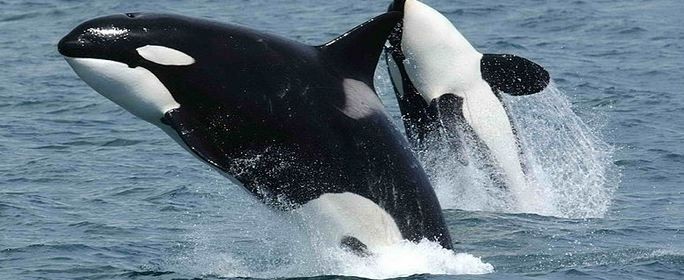Grandma orcas know best

Like many human families, killer whales often rely on the wisdom of matriarchs to help them endure hardships and thrive, new research has found. Male orcas usually live for about 50 years, but females often survive well into their 90s, making them one of the few mammalsthat live for decades after they stop reproducing.
Marine scientists studied the behavior of 102 whales over the course of eight years and found female killer whales take on a vital leadership role after menopause. Older females often swim in the front and direct their pods’ movements, particularly when food is scarce. In some cases, the number of whales in a group declined dramatically following the death of its oldest female. “These findings suggest that menopausal females may boost the survival of their relatives through the transfer of ecological knowledge, which may help explain why killer whales continue to live long after they have stopped reproducing,” says Lauren Brent, one of the researchers from the University of Exeter. The findings may also explain why humans are built to survive for decades after fertility ends.

 Print
Print